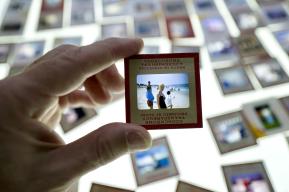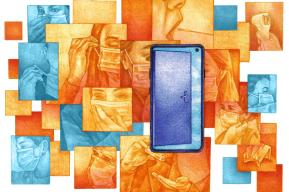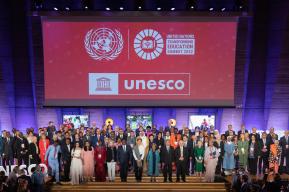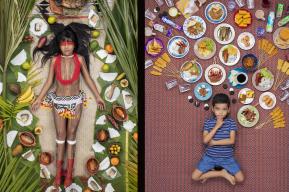فكرة
هذا ما كشفته الأزمة الصحية عن أوضاعنا

لئن أفصحت جائحة كورونا عن عدد من الظواهر من قبيل منح قيمة أكبر للحياة البشرية، وصعود السلطة الصحية بقوّة، وإضفاء طابع طبّي على حياتنا، وتمدّد نطاق سلطة الدولة، فهي ظواهر لم تولد مع الأزمة وإنّما كشفت عنها هذه الأخيرة .
إيكاتيرينا شولمان
أستاذة مشاركة في مدرسة العلوم الاقتصادية والاجتماعية بموسكو، وباحثة مشاركة في برنامج روسيا ومنطقة أوراسيا للمعهد الدولي للشؤون الدولية (تشاثام هاوس، لندن).
لئن كان من السابق لأوانه الحديث عن تداعيات الجائحة، فبوسعنا، أن نقف منذ الآن، على الاتجاهات التي لم تكن وليدة الأزمة بقدر ما أسهمت هذه الأخيرة في إبرازها. وليس بمقدور المجتمعات، ونظم الحوكمة، والشركات، والمواطنين، مجابهة الأزمة سوى في حدود ما يمتلكونه من أدوات قبل حدوث حالة الطوارئ. لقد جرت العادة أن نقول بأن الجنرالات دائما ما يخوضون الحرب بمفاهيم الحرب السابقة. وبهذا المعنى، نحن اليوم، أفرادا وجماعات، بمثابة جنرالات حرب متأخرة.
إن ما كشفت عنه الأزمة الصحية التي ضربت العالم، أخيرا، هو أن الحكومات لم يعد بإمكانها السماح لنفسها بترك المجال لتفشّي الأزمة، وعليها، إذا ما أرادت ضمان بقائها السياسي، إثبات استعداداتها لفعل كل شيء حفاظا على الحياة البشرية.
فيما مضى، كان يُنظر إلى الأوبئة من نوع كوفيد ـ 19، وتفشّيها، على أنّها قدَر محتوم. أمّا اليوم، وبالنظر إلى متطلباتنا الأخلاقية الحالية، لم يعد هذا الأمر ممكنا بحكم القيمة العليا التي تحظى بها الحياة البشرية.
أولويّة الحياة البشرية
كان المواطنون، خلال القرن العشرين، يقبلون بتقييد حرياتهم باسم مُثُلٍ عليا أو أهداف سامية من قبيل الانتصار على العدوّ، أو إنجاز أعمال ضخمة، أو الوعد بمستقبل ذهبي. أما في القرن الحادي والعشرين، فإن الوعد بأفق مستقبل مشرق لم يعد دافعا للقبول بالتّراجع عن حرياتهم، بل الذي يدفعهم إلى ذلك هي إرادة تجنّب وقوع عدد كبير من الضحايا. واليوم، فإن القيود التي نعاني منها ـ ويشعر الكثيرون بأنها علامة على تزايد عنف الدولة ـ ليست، في الواقع، سوى نتيجة طبيعية لحاجتنا إلى الأمن.
لقد أصبحت الحياة ثمينة إلى حدّ لم تعد معه أيّ حكومة في العالم قادرة على تحمّل خسائر في الأرواح بالإمكان تجنبها، في نظر المجتمع. وتجدر الملاحظة، هنا، إلى أن الدول، سواء كانت ديمقراطية أم استبدادية، قد اتّخذت تدابير مماثلة تقريبا من حيث القيود على الحريات. في حين أنّها اعتمدت استراتيجيات مختلفة تماما في مجال دعم الاقتصاد الذي تعرّض إلى صدمة الوباء والحجر الصحي. ونظرا إلى أنّ الاقتصاد الحديث يقوم على الخدمات وليس على استغلال الموارد، فيمكن أن نتصوّر أن الحفاظ على البشر ـ سواء كانوا منتجين للخدمات أو مستهلكين- أمر منطقي حتى وإن بدا غير مربح من وجهة نظر اقتصادية بحتة قصيرة المدى.
وقد كشفت الثقافة الإنسية، خلال هذه الأزمة، أنها كانت على استعداد للتّخلي عن الحريّة باسم الصّحة العامة. وكان لارتفاع معدّل العمر، وتقدم الطبّ، والحرص على حياة صحية، ودور الشّبكات الاجتماعية في تثمين نرجسية الفرد، أثره في تعزيز هذه الظاهرة.
إضفاء الطابع الطبّي على الحياة اليومية
إن مقتضيات "الأمن"، بمعنى "البقاء" و"الحفاظ على الصّحة"، قد تجلّت في إضفاء الطابع الطبّي على حياتنا اليومية ولم تقتصر على نشر التّعليمات والممارسات الطبية في حياتنا. فمن المحتمل، مستقبلا، أن يشمل هذا التطبيب للحياة المسارات السياسية ومسائل الحوكمة إذا ما رأى المجتمع الدولي، على سبيل المثال، أن مكافحة الأوبئة تقتضي تنسيقا من نفس المستوى الذي تطلّبه التصدّي للإرهاب.
إنّ المعارف الطبية، وما واكبها من تمثّلات علمية زائفة ازدهرت عبر الإنترنت بصفة خاصة، قد غزت لغتنا اليومية وأصبحت متداولة في يومياتنا. ولن يفجأ أحد، بعد اليوم، بوجود أجهزة قياس حرارة الأشخاص في الأماكن العامة، بنفس الطريقة التي تعوّدنا عليها في الخضوع إلى أجهزة الكشف عن المعادن. وسوف تصبح استشارتنا الطّوعية للطبيب، كفعل إرادي حرّ، مجرّد ذكرى بعيدة، إذ قد يُجبر، غدا، الأشخاص المصابون بالحمّى على الإقامة الجبرية، مثلما عشناه مؤخّرا.
ويتجسّد إضفاء الطابع الطبي على الحياة اليومية، أيضا، في الدور المتزايد للخدمات الصحية، بما في ذلك في المجال السياسي. ويُلاحَظ هذا في مستوى الدول كما على الصعيد العالمي حيث أنّ الأهمية السياسية التي تحظى بها منظمة الصحة العالمية لا تقاس، فقط، بعدد البلدان التي تطبّق توصيات المنظمة المتعلقة بمكافحة الأوبئة، بل تقاس أيضاً بحدّة المقاومة السياسية التي تثيرها هذه التوصيات.
وسوف يقتضي استئناف التجارة الدولية، والنقل الجوي، والرحلات، في المستقبل المنظور، إعداد منظومة قواعد وقيود موحدة. كما ستتحوّل الهيئة ما فوق الوطنية المكلّفة بصياغة هذه التوصيات ومراقبة تطبيقها، إن وُجدت، إلى فاعل هامّ في العلاقات الدولية.
تجربة مشتركة
في الوقت الذي انغلق فيه العالم، فجأة، على نفسه، لم يسبق له، في الآن ذاته، أن عرف هذا المستوى من الاتصال الشبكي فيما بينه. فهذه المأساة أفضت إلى توحيد البشرية حول نفس القضية. ومثل هذا الاشتراك في المصير لم يحدث منذ "سباق التسلح النووي"، مع فارق أن المواطنين اليوم أكثر انخراطا في الأحداث.
ففي مثل هذه اللحظات المحورية، تُبنى التحالفات التي سترسم ملامح عالم الغد، على غرار ما حدث غداة الحربين العالميتين اللتين هزّتا القرن العشرين. وسيكون من السابق لأوانه الحديث عمن سيكون المستفيد من ذلك؟ ومن هم الأعضاء الجدد الذين سيتشكّل منهم مجلس الأمن المكلّف بمكافحة الفيروسات؟.
لكن المؤكّد أن البلدان الصناعية سيتعيّن عليها تحمّل مسؤولية متزايدة لمعالجة أوجه القصور في النظم الصحية للبلدان الأكثر فقراً وإلا فإنّ الجهود المبذولة في مكافحة الجائحة ستذهب سدى. وحتّى الآثار المفيدة للتدابير الجذرية مثل الحجر الصحّي ستصبح لاغية في صورة ظهور بؤرة جديدة في بلد غير قادر على احتواء الوباء.
لقد عشنا "تجربة مشتركة"، بمعنى أن عدداً كبيراً للغاية من الناس عاشوا هذه التجربة في نفس الوقت وتقاسموها كما كان الحال قبل نحو عشرين عاماً عندما انهار البرجان التوأمان في نيويورك.
فاعتداءات 11 سبتمبر الإرهابية مثّلت نقطة تحوّل حيث حظيت الخدمات الأمنية، بعد هذا التاريخ، بسلطات واسعة، وتعزّزت عمليات مراقبة المواطنين، وتمّ تعميم ممارسات من قبيل تثبيت كاميرات المراقبة في الأماكن العامة، واستخدام برامج التعرّف على الوجه، واللّجوء إلى أنظمة التنصّت على المحادثات. كما تغيّرت حياتنا اليومية، ولاسيما رحلاتنا الجوية وما واكبها من إجراءات المراقبة التي أصبحت، في نظرنا اليوم، عادية.
المزيد من المراقبة وتضييق أكبر على الحريّات
أثناء هذه الأزمة، استغلت بعض الدول جائحة كورونا لبسط سلطاتها، في كنف القانون، في مجال المراقبة واستخدام البيانات الخاصة بالمواطنين. هكذا نرى كيف أن ظروفاً استثنائية من شأنها أن تبرّر ممارسات المراقبة والرّصد وتضفي عليها الشرعية في نظر المجتمعات. وينطبق ذلك أيضاً على النظم الديمقراطية. وقد تزيد الجائحة من تآكل حظوظ حماية الحياة الشخصية، رغم أنّه في النظم الديمقراطية ثمة، على الأقل، قوى مضادة للحدّ من هذا التطفّل على بياناتنا الشخصية في حين أنّه لا يوجد ما يوازي ذلك في الأنظمة الاستبدادية.
مثل هذا التهديد يصبح أكثر واقعية في أوقات الأوبئة التي تساعد على تعزيز قوّة الدولة بداية من الأزمة الاقتصادية، الناجمة عن الأزمة الصحية، والتي تجعل من الشركات والمؤسسات العامة المشغّلة الوحيدة القادرة، تقريباً، على الإيفاء بالتزاماتها. كما أنّ الأزمة تعزّز دولة الرعاية الاجتماعية التي توفّر شبكة أمان قد تحوّل، مستقبلا، العاملين إلى مستفيدين من دخل أساسي مضمون.
أعمال غير مرئية
بينما كان العالم خاضعاً لإجراءات الحجر الصحّي، أدرك ملايين الأشخاص أن العمل عن بُعد، بجميع أشكاله، أكثر فائدة للمشغّل من الموظّف نفسه. فبفضل هذا التنظيم الجديد للعمل، تُحْمَل تكاليف التّدفئة، والصّيانة، والإيجار، وحتى التّجهيزات اللازمة للعمل على الموظّف عوضا عن المشغّل.
إضافة إلى أنّ الحدود بين وقت العمل والوقت الشّخصي، وبين مجال العمل ومجال الحياة، تتجه نحو التلاشي. ومثل هذه الظاهرة تُضرّ بالحقوق التي اكتسبتها الحركات الاجتماعية والنقابية بعد نضالات مضنية على مدى القرنين التاسع عشر والعشرين. فهي بقدر ما تمرّ بنا، بالتأكيد، إلى مستوى تقني جديد، تعود بنا إلى أوضاع سابقة، عندما كانت العلاقات بين الأجراء وأرباب العمل غير مقنّنة بالكامل، والعمل غالباً ما يُنجز في المنازل ويُكافَأ بالقطعة.
أثناء هذه الأزمة غير المسبوقة، وجد الأجراء أنفسهم ملزمين بأداء خدمات يقوم بها عادةً آخرون، مثل رعاية الأطفال، والعناية بالمسنين، وأعمال الطبْخ، وغيرها من الواجبات المنزلية. وقد أبرزت الأزمة هذه الخدمات غير المرئية وغير المدفوعة الأجر، والتي تُسمَّى أحياناً "الناتج المحلي الإجمالي الثاني"، وهي أعمال تقوم بأدائها، عموما، النساء. وقد تكون الأزمة فرصة لمناقشة ضرورة دفع أجور مقابل هذه الأشكال من العمل غير المرئي.
إنّ نظام العلاقات الدولية دائماً ما أعيد تنظيمه في أعقاب الكوارث الكبرى. فالحرب العالمية الأولى أفضت إلى قيام عُصبة الأمم، والحرب العالمية الثانية أدّت إلى نشأة منظمة الأمم المتحدة. هكذا اتحدت البشرية، في كلّ مرّة، على أساس تجربة جماعية، ووضعت لنفسها أدوات جديدة، وآليات جديدة للحوكمة. وقد تنشأ هيئات جديدة عن الأزمة الحالية.
وخلافاً لمآسي سابقة في التاريخ وضعت البشر وجها لوجه وفرّقت بينهم، فإنّ هذه الجائحة تضعنا جنبا إلى جنب في مواجهة الفيروس. ما من أحد أمامنا نوجّه إليه كراهيتنا وليس من خيار آخر لدينا في مواجهة هذه الأزمة سوى التّضامن مع بعضنا البعض.
قراءات تكميلية
ماذا عن المخاطر الأخلاقية للذكاء الاصطناعي، رسالة اليونسكو، يوليو- سبتمبر 2018
الإنسانوية أو السّبل إلى إخماد التعطّش إلى الإنسانية، رسالة اليونسكو، يوليو- سبتمبر 2017
ثورة لم تعلن عن اسمها، رسالة اليونسكو، جويلية- سبتمبر 2011
النّزعة الإنسانية، فكر متجدّد دائما، رسالة اليونسكو، أكتوبر- ديسمبر 2018
أولويّة المسألة الاجتماعية، رسالة اليونسكو، نوفمبر 1959
اشترك في رسالة اليونسكو لمتابعة الأحداث. الاشتراك في النسخة الرقمية مجاني 100%.
تابع رسالة اليونسكو على تويتر، فايسبوك، أنستغرام
By Ekaterina Schulmann
While it is too early to discuss the consequences of the pandemic, we can already see trends emerging that did not arise from the crisis, but which the crisis has made salient. Societies, governance systems, businesses and citizens can only react with the tools they had before the emergency. As it is often said, generals are always fighting the last war. From this perspective, we are all generals, individually and collectively.
What the recent global health crisis has revealed is that governments can no longer afford to allow an epidemic to spread. If they want to ensure their political survival, they must show they are doing everything possible to preserve human life.
In the past, the emergence and spread of a disease like COVID-19 would have been considered inevitable. However, in view of our current ethical requirements, this is no longer possible – because of the higher value placed on human life.
The primacy of human life
In the twentieth century, citizens could accept having their freedoms restricted in the name of high ideals or superior goals – victory over the enemy, the construction of a great work or the promise of a golden age. In the twenty-first century, it is not the prospect of a bright future that leads people to accept a curtailing of their freedoms, but the desire to avoid a large number of casualties. Today, the constraints that we are under – and which many perceive as a sign of increased state violence – are in fact the corollary of our need for security.
Life has become so precious that no government in the world can afford a loss of life that society considers preventable. Moreover, it should be noted that states – whether democratic or authoritarian – have taken measures that are quite similar in terms of restrictions on freedoms.
They have, however, adopted very different strategies to support the economy, shattered by the shock of the epidemic and lockdown. The modern economy is based on services, and not on the exploitation of resources. It is therefore rational to preserve people – producers and consumers of services – even if it may seem unprofitable in the short term, from a strictly economic point of view.
During this crisis, humanist culture has revealed that it is ready to make concessions on freedom in the name of public health. The increase in life expectancy, medical progress, the cult of healthy living and the narcissistic valorization of social networks have favoured this phenomenon.
The medicalization of everyday life
The imperative of “security”, a notion to be understood as both “survival” and the “preservation of health”, has resulted in the medicalization of our daily lives. This does not refer only to the circulation of medical expressions and practices in our lives. Tomorrow, it could well extend to political processes and governance – if the international community were to decide, for example, that the fight against diseases requires the same level of co-ordination as the fight against terrorism.
Medical knowledge – and with it, the pseudoscientific representations that flourish, particularly online – has invaded everyday language and entered our daily lives. Soon, no one will be surprised by the presence of temperature-measuring devices in public places, in the same way that we have become accustomed to metal detectors. Soon, we will hardly remember the time when consulting a doctor was a matter of free will. Perhaps tomorrow, people with fevers will be placed under house arrest, as we have just been.
The medicalization of everyday life also means an increased role for the health services, including in the political field. This process can be observed at the state level, but also at the global level. The political importance of the World Health Organization (WHO) is measured not only by the number of countries that implement its epidemiological recommendations, but also by the harshness of the political resistance to these recommendations.
The resumption of international trade, air transport and travel will necessitate the development of a new set of global health rules and regulations, in the near future. The supranational body responsible for formulating these recommendations and monitoring their implementation, if it is created, will become an important player in international relations.
Common experience
While the world has suddenly closed in on itself, it has never been more connected. This common tragedy has united humanity around a shared cause. Such a communion of destiny may not have occurred since the race for the atom bomb – with the difference that today, citizens are much more involved in world events.
It is at these pivotal moments that alliances that will shape the world of tomorrow are forged – as was the case after the two world wars that shook the twentieth century. Who will be the winners? Who could be the new members of an Anti-Virus Security Council? It is too soon to say.
What is certain, though, is that the industrialized countries will have to assume greater responsibility for addressing the shortcomings of the health systems of poorer countries. Otherwise the efforts made to combat a pandemic will be in vain. The benefits of drastic measures such as lockdowns will be negated if a new outbreak occurs in a country that is unable to contain an epidemic.
We have just lived through a common experience – one that was lived and shared by a very large number of people at the same time. It is similar to what happened when the Twin Towers collapsed in New York, nearly twenty years ago.
The 11 September 2001 attacks in the United States marked a turning point. After that date, extensive powers were granted to security services around the globe, and the surveillance of citizens was intensified. Practices such as the installation of cameras in public places, the use of facial recognition software and wiretapping systems became widespread after the attacks. Our daily lives – especially our air travel, with its series of controls that we now consider normal – have also been altered.
More surveillance, less freedom
During this crisis, certain states have taken advantage of the coronavirus epidemic to legally expand their powers of surveillance and use of citizen data. We see thus, how extraordinary circumstances justify and legitimize surveillance and control, in the eyes of societies. The same applies to democratic regimes. The epidemic threatens to erode privacy even further. In democracies at least, counterbalancing powers exist to limit this intrusion into our data. This is not the case in autocratic regimes.
The threat is all the more real in times of an epidemic, when everything favours the power of the state – starting with the economic crisis generated by the health crisis, which makes public companies and institutions almost the only solvent employers. The crisis also strengthens the welfare state, which acts as a safety net – perhaps turning workers into recipients of a universal income tomorrow.
Invisible work
While the world was in lockdown, millions of people realized that working remotely, in all its forms, is more beneficial to the employer than to the employee. Thanks to this new organization of work, the costs of heating, maintenance, rent, and even equipment, were now borne by the employee.
Moreover, the boundaries between working time and personal time, between workspace and living space, tend to become blurred. Such a trend undermines the hard-won rights acquired by social and trade-union movements in the nineteenth and twentieth centuries. It brings us back – albeit at a new technical level – to an earlier situation, when relations between employees and employers were poorly regulated, work was often carried out at home, and paid for on a piecework basis.
During this unprecedented lockdown period, employees also found themselves obliged to take on service functions normally performed by others – such as childcare, care of the elderly, cooking or other domestic tasks. The pandemic has highlighted this invisible and unpaid service labour – sometimes referred to as a “second GDP”– that is usually performed by women. The crisis may provide an opportunity to discuss the need to pay for these forms of invisible work.
It is always in the wake of major disasters that the international relations system has been reorganized. The First World War gave birth to the League of Nations, the Second World War, to the United Nations. On the basis of a common experience, humanity united and designed for itself new instruments, new mechanisms of governance. New institutions could emerge from the current crisis.
Unlike other past tragedies that pitted humankind against each other, the pandemic confronts us with only a virus. So, we have no one to hate. In the face of this crisis, we have no other choice but to show solidarity.
Ekaterina Schulmann
Associate professor at the Moscow School of Social and Economic Sciences (MSSES), and Associate Fellow, Russia and Eurasia Programme at Chatham House, The Royal Institute of International Affairs, London.

In the same issue








